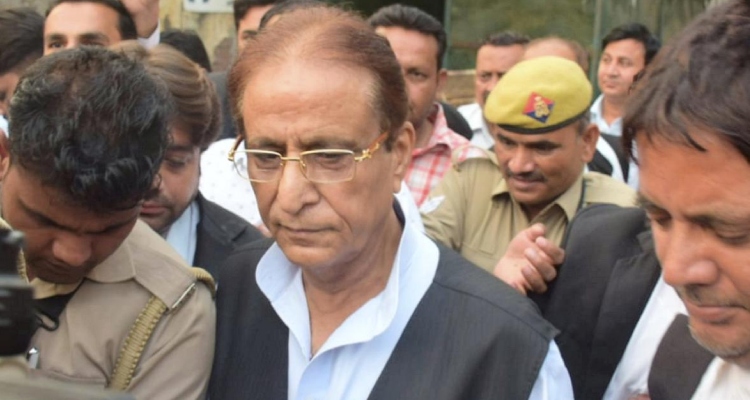
The Supreme Court on Monday has dismissed a plea challenging the cancellation of a land lease belonging to Maulana Mohammad Ali Jauhar University, operated by a trust headed by Samajwadi Party leader Azam Khan in Rampur, UP.
A bench led by Chief Justice D. Y. Chandrachud, alongside Justices J. B. Pardiwala and Manoj Misra, upheld the Allahabad High Court’s earlier ruling that rejected the executive committee’s appeal against the state government’s decision to cancel the lease.
The Uttar Pradesh government annulled the lease for a 3.24-acre plot, citing violations of lease conditions. It was originally allocated for a research institute but was reportedly being used to run a school instead.
The bench highlighted the conflict of interest, noting that Azam Khan, who was a cabinet minister responsible for Urban Development and Minority Welfare, had facilitated the land allocation to a family trust of which he is a lifetime member.
The bench remarked, “How can a lease, which was meant for a government institute, be given to a private trust? It is a misuse of the office.”
Despite the ruling, the court acknowledged the arguments presented by senior advocate Kapil Sibal, representing the trust, and urged the Uttar Pradesh government to ensure that no child is denied admission to an appropriate educational institution.
Sibal contended that the lease cancellation in 2023 was executed without providing any reasons. He expressed that had he received a notice, he could have responded before the decision escalated to the cabinet level, where the chief minister ultimately made the final call.
Previously on March 18, the Allahabad High Court has dismissed the trust’s plea, asserting that the lease was cancelled without affording an opportunity for a hearing. The advocate general representing the state argued that public interest took precedence, stating that the land, intended for higher education, was being misused for a school.
In defense of the lease cancellation, the advocate general cited a report from a Special Investigation Team, claiming that adequate opportunity was given to the petitioner to respond before the cancellation. The state characterized the situation as a case of “nepotism,” emphasizing that the cabinet minister had bypassed established procedures in granting approvals for the trust’s use of the land.
This ruling reflects ongoing concerns regarding governance, the allocation of public resources, and the preservation of educational purposes in land use, particularly in cases involving political figures and their affiliations.
As the situation develops, the impact on the local educational landscape and the trust’s future remains to be seen.




